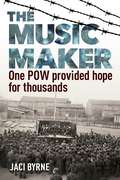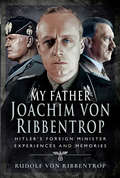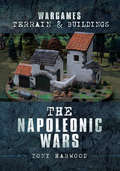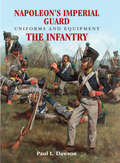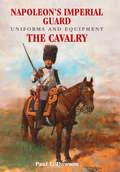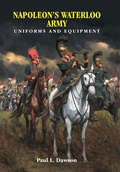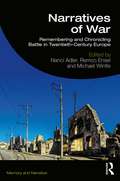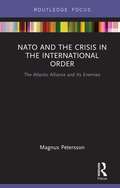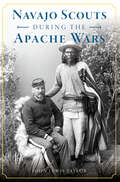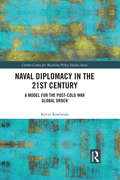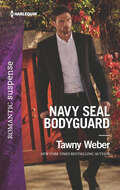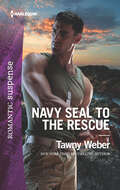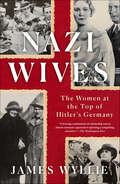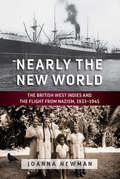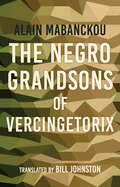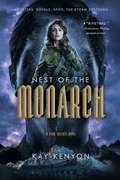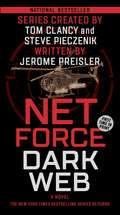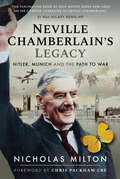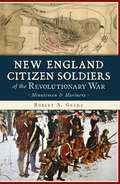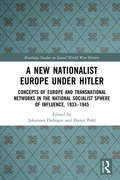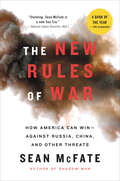- Table View
- List View
The Music Maker: One POW Provided Hope for Thousands
by Jaci ByrneOn May 8 1945, forty-six-year-old Drum Major Jackson staggered towards his American liberators. Emaciated, dressed in rags, his decayed boots held together with string, he’d been force-marched for twenty days over the Austrian Alps after five heinous years as a POW in Nazi labour camps. He collapsed into his liberators’ arms, clinging to his only meaningful possession—his war diary. Having already experienced the horrific nature of battle in the First World War, Jackson had now survived another War—unlike hundreds of his mates, who’d succumbed to disease, insanity, or had been killed in action. Men far younger than he. But he could never have imagined what awaited him on the home front. A captivating testament to human endurance, Jackson’s diary and photos, one of the last such memoirs to be published, is the inspiration for The Music Maker. An unforgettable and gripping true story about the life and times.
My Dearest Dietrich: A Novel of Dietrich Bonhoeffer’s Lost Love
by Amanda BarrattA staggering love illuminating the dark corners of a Nazi prisonRenowned German pastor and theologian Dietrich Bonhoeffer is famous for his resistance to the Nazi regime and for his allegiance to God over government. But what few realize is that the last years of his life also held a love story that rivals any romance novel.Maria von Wedemeyer knows the realities of war. Her beloved father and brother have both been killed on the battlefield. The last thing this spirited young woman needs is to fall for a man under constant surveillance by the Gestapo. How can she give another piece of her heart to a man so likely to share the same final fate? Yet when Dietrich Bonhoeffer, an old family friend, comes to comfort the von Wedemeyers after their losses, she discovers that love isn't always logical.Dietrich himself has determined to keep his distance from romantic attachments. There is too much work to be done for God, and his involvement in the conspiracy is far too important. But when he encounters a woman whose intelligence and conviction match his own, he's unprepared for how easy it is to give away his heart.With their deep love comes risk--and neither Dietrich nor Maria is prepared for just how great that risk soon becomes.Based on detailed historical research, this true love story is at once beautiful and heartrending. My Dearest Dietrich sheds new light on a world-famous theologian . . . and the woman who changed his life.
My Father Joachim von Ribbentrop: Hitler's Foreign Minister, Experiences and Memories
by Rudolf von RibbentropIn this memoir, the son of Nazi Germany&’s foreign minister looks back on his life, examining their relationship and his father&’s role in World War II. On 16 October 1946, Joachim von Ribbentrop, Hitler&’s wartime Foreign Minister, was executed at Nuremberg, convicted on four counts including deliberately planning a war of aggression and war crimes. In this first English language edition of his memoirs, Rudolf von Ribbentrop candidly describes his relationship with his father when he was the German Ambassador in London and during the war years. Von Ribbentrop was an often-isolated figure among the Nazi elite. In his final report from London, von Ribbentrop informed Hitler that he was convinced Great Britain would fight for its position in the world. He went on to play a key role forging the short-lived pact with Stalin&’s Soviet Union. Far from being uncritical, the author sets out to paint an objective picture of his father&’s role. His unique position sheds light on the unfolding dramatic events leading up to, and then the execution of, the Second World war. While the author briefly describes his personal experiences including his war service with the SS, it is the insight this work provides into top level decision making at the heart of the Third Reich that will appeal most to both historians and laymen.
My Rich Uncle: An Informal Guide to Maximizing Your Enlistment
by A. J. KehlWant to maximize your time in the military? Want to know what it really takes to be successful while serving your country? Ever just want someone to keep it real on the topics that mean the most to you? A.J. Kehl, a Senior Master Sergeant (SMSgt) in the U.S. Air Force, does just that and more in My Rich Uncle: An Informal Guide to Maximizing Your Enlistment. Kehl’s well-crafted guide is designed with one purpose in mind: To make sure you make the most out of your time in the armed forces. Sgt. Kehl distinguishes his book from any other you will read, pointing out all the important things that rarely, if ever, make it to print. Hot items such as promotion, leadership, networking, and traveling make this a must-read for anyone now on active duty, thinking of joining the military, or who has spent time within this unique lifestyle. My Rich Uncle includes an invaluable collection of knowledge, wisdom, and insight from numerous military leaders, all of which is geared toward helping fellow military members find success in their careers. It highlights the cultural things we expect men and women to know, or at least figure out, but which are rarely taught. This book will help you successfully navigate a military career by providing insight into the expectations and the steps for YOU to take in order to maximize your service time and set yourself up for success. It also highlights little known programs, like Air Force Lean and Continuous Process Improvement, that empower members to find root cause solutions and reduce time-wasting practices that do not further your career. My Rich Uncle: An Informal Guide to Maximizing Your Enlistment is written by an airman for men and women in all branches who want to get the most out of their service. “This is a military guide like no other!” — J. Lewis, Command CMSgt (Ret.) “The author has put together a masterpiece collection of knowledge, wisdom, and insight.” — Lt. Col. J. Failing “A recipe for success.” — L. Manley, CMSgt (Ret.)
The Napoleonic Wars (Wargames Terrain and Buildings)
by Tony HarwoodAny miniature wargame is greatly enhanced by realistic and evocative scenery and buildings, but commercial ready-made pieces can be expensive. Building your own can be a cost-effective and very rewarding alternative, another hobby in itself, but it can be hard to know where to start. Wargames Terrain and Buildings is a series of books aimed at giving wargamers the skills, techniques and guidance they need to create their own stunning and practical model buildings.In this volume, master modeler Tony Hardwood shares his years of experience and presents the reader with a wide range of projects for the Napoleonic era. With the aid of step-by-step photographs, he guides the reader through building and finishing each of these models, which are organized in three sections of increasing complexity and encompass a range of scales and different materials. Nine projects are included but the techniques and skills demonstrated along the way, along with valuable advice on tools, construction materials and paints, can be adapted and applied to a much wider range of structures to grace your battlefields.
Napoleon's Imperial Guard Uniforms and Equipment. Volume 1: The Infantry
by Paul L. DawsonThe author of Battle for Paris 1815 examines the uniforms and equipment of the infantry of Napoleon&’s Imperial Guard. From its origins as the Consular Guard of the French Republic, and as Napoleon&’s personal bodyguard, the Imperial Guard developed into a force of all arms numbering almost 100,000 men. Used by Napoleon as his principal tactical reserve, the Guard was engaged only sparingly, being deployed at the crucial moment of battle to turn the tide of victory in favor of the Emperor of the French. Naturally, the Imperial Guard has been the subject of numerous books over many decades, yet there has never been a publication that has investigated the uniforms and equipment of the infantry of the Imperial Guard with such detail and precision. The author has collected copies of almost all the surviving documents relating to the Guard, which includes a vast amount of material regarding the issuing of dress items, in some instances down to company level. This information is supported by an unrivaled collection of illustrations, many of which have never been published before, as well as images of original items of equipment held in museums and private collections across the globe. In addition, the renowned military artist, Keith Rocco, has produced a series of unique paintings commissioned exclusively for this book. This glorious book is, and will remain, unsurpassed as the standard work on the clothing and equipment of the Imperial Guard, and will not only be invaluable to historians, but also reenactors, wargamers and modelers. It is one of the most important publications ever produced on this most famous of military formations.
Napoleon's Imperial Guard Uniforms and Equipment. Volume 2: The Cavalry
by Paul L. DawsonThe author of Battle for Paris 1815 examines the uniforms and equipment of the cavalry of Napoleon&’s Imperial Guard. Few military formations have attracted more attention than Napoleon&’s Imperial Guard, and fewer still have been so extravagantly clothed and accoutered with the finest materials and the brightest colors. On both campaign and parade, the Guard, and especially the cavalry regiments, provided a dazzling display of military grandeur. From the green and gold trappings of the Chasseurs à Cheval, to the multicolored Mamelukes, the Guard cavalry was among the most brilliantly dressed formations ever to grace the field of battle. In compiling this magnificent volume, the author has collected copies of almost all the surviving documents relating to the Guard, which includes a vast amount of material regarding the issuing of dress items, even in some instances down to company level. This information is supported by around 100 contemporary prints, many of which have never been published before, as well as images of original items of equipment held in museums and private collections across the globe. In addition, the renown military artist, Keith Rocco has produced a series of unique paintings commissioned exclusively for this book. This glorious book is, and will remain, unsurpassed as the standard work on the clothing and equipment of the cavalry of the Imperial Guard. It is sure to be treasured by reenactors, wargamers, and modelers, as well as historians and enthusiasts as one of the most important publications ever produced on this most famous of military formations.
Napoleon's Waterloo Army: Uniforms and Equipment
by Paul L. DawsonThe author of Waterloo: The Truth at Last &“sheds new light on the campaign of 1815 and surely will satisfy all with an interest in the Napoleonic Era&” (The Napoleonic Historical Society Newsletter). When Napoleon returned to Paris after exile on the Island of Elba, he appealed to the European heads of state to be allowed to rule France in peace. His appeal was rejected and the Emperor of the French knew he would have to fight to keep his throne. In just eight weeks, Napoleon assembled 128,000 soldiers in the French Army of the North and on 15 June moved into Belgium (then a part of the kingdom of the Netherlands). Before the large Russian and Austrian armies could invade France, Napoleon hoped to defeat two coalition armies, an Anglo-Dutch-Belgian-German force under the Duke of Wellington, and a Prussian army led by Prince von Blücher. He nearly succeeded. Paul Dawson&’s examination of the troops who fought at Ligny, Quatre-Bras and Waterloo, is based on thousands of pages of French archival documents and translations. With hundreds of photographs of original artifacts, supplemented with scores of lavish color illustrations, and dozens of paintings by the renowned military artist Keith Rocco, Napoleon&’s Waterloo Army is the most comprehensive, and extensive, study ever made of the French field army of 1815, and its uniforms, arms and equipment. &“Contains many rare and previously unpublished images in the form of full color drawings and photographs of surviving relics. As with the earlier volumes, this book will appeal to and be enjoyed by a wide readership with special interest for historians, military history enthusiasts, Napoleonic War enthusiasts and re-enactors.&” —Firetrench
Narratives of War: Remembering and Chronicling Battle in Twentieth-Century Europe (Memory and Narrative)
by Nanci Adler Remco Ensel Michael WintleNarratives of War considers the way war and battle are remembered and narrated across space and time in Europe in the twentieth century. The book reflects on how narratives are generated and deployed, and on their function as coping mechanisms, means of survival, commemorative gestures, historical records and evidence. The contributions address such issues as the tension and discrepancy between memory and the official chronicling of war, the relationship between various individuals’ versions of war narratives and the ways in which events are brought together to serve varied functions for the narrators and their audiences. Drawing upon the two World Wars, the Spanish Civil War and the ex-Yugoslav wars, and considering narrative genres that include film, schoolbooks, novels, oral history, archives, official documents, personal testimony and memoirs, readers are introduced to a range of narrative forms and examples that highlight the complexity of narrative in relation to war. Approached from a multidisciplinary perspective, and taken together, analysis of these narratives contributes to our understanding of the causes, experience, dynamics and consequences of war, making it the ideal book for those interested in twentieth-century war history and the history of memory and narrative.
NATO and the Crisis in the International Order: The Atlantic Alliance and Its Enemies
by Magnus PeterssonThe main objectives of this book are to analyse the risks and dangers NATO faces in the current strategic environment and to discuss how the alliance can readjust to those challenges. How can NATO adapt to the dangerous combination of a revisionist Russia, a reluctant United States, and a Europe in crisis? NATO’s relevance and ability to survive have been challenged many times before, and it has not only survived but also has proven highly adaptable to change. This has been good for Western cohesion and for the consolidation of the liberal-democratic, rules-based world order. The main argument of this book is that NATO can overcome this latest set of challenges as well and retain its central role as a cornerstone of the European and transatlantic security order. NATO is different from other alliances because its members share not only interests but values as well, codified in the preamble of the North Atlantic Treaty as allied support for democracy, individual liberty, and the rule of law. The greatest enemy of the alliance is the forces that challenge the common norms and values of NATO’s member states, and – in a larger perspective – the liberal-democratic, rules-based world order, and Western civilisation itself. The book makes an original contribution to the existing literature on NATO and transatlantic relations and discusses the latest developments within NATO since the Trump administration took office. The book will be of much interest to students of NATO, geopolitics, security studies, and International Relations in general.
Navajo Scouts During the Apache Wars (Military Ser.)
by John Lewis TaylorAn in-depth account of the reasons, risks, and rewards that impacted the Navajos who enlisted in the American military in the late nineteenth century. 2019 New Mexico/Arizona Book Awards eBook Nonfiction Winner In January 1873, Secretary of War William W. Belknap authorized the Military District of New Mexico to enlist fifty Indigenous scouts for campaigns against the Apaches and other tribes. In an overwhelming response, many more Navajos came to Fort Wingate to enlist than the ten requested. Why, so soon after the Navajo War, the Long Walk and imprisonment at Fort Sumner, would young Navajos volunteer to join the United States military? Author John Lewis Taylor explores this question and the relationship between the Navajo Nation and the United States military in the late nineteenth and early twentieth centuries. &“Relates the story of those men, chronicling their role in the army&’s attempts to subdue the Apaches who resisted the reservation system being imposed on them.&” —Farmington Daily Times
Naval Diplomacy in 21st Century: A Model for the Post-Cold War Global Order (Corbett Centre for Maritime Policy Studies Series)
by Kevin RowlandsThis book offers a detailed investigation of naval diplomacy, past and present, and challenges the widely accepted Anglo-American school of sea power thought. Despite the acknowledgement of the importance of the threat or use of force in the pursuit of policy since the dawn of strategic thought, the utility of seapower in operations other than war is poorly understood and articulated. Theorists have invariably viewed seapower in peacetime through the lens of hard power effects such as coercion and deterrence. Commentaries on engagement, interoperability and the forging of friendships are largely conspicuous by their absence. This book considers how all these strands of international politics can be better understood for use in the 21st century. The book explains and defines naval diplomacy, with existing theoretical frameworks being critically analysed. It reviews over 500 incidents from the post-Cold War era, drawing on this empirical evidence to determine that naval diplomacy remains a potent means of 21st century statecraft. It finds that existing understanding of naval diplomacy is insufficient and offers an alternative model, drawing on basic communication and stakeholder theories. The implications of the book relate directly to national security: naval deployments could be more effectively targeted; foreign activity at sea could be better understood and, if necessary, countered; finally, the ability of non-state actors to support national interests from the sea could, potentially, be better harnessed. This book will be of much interest to students of naval power, maritime security, strategic studies and International Relations.
Navy SEAL Bodyguard (Aegis Security #2)
by Tawny WeberAn undercover mission means deadly danger for one navy SEALA brand-new Aegis Security romanceAfter his career as a SEAL is cut short by injury, Spence Lloyd is thrilled when he gets a top secret assignment. But it’s hardly the death-defying action he’s used to. Instead, Spence must protect a high-ranking admiral’s beautiful daughter. As stubborn as she is alluring, Mia Cade presents a unique challenge to her bodyguard—one that will test his head and his heart…
Navy SEAL to the Rescue (Aegis Security #1)
by Tawny WeberRescued by the alpha SEALTawny Weber debuts the stunning Aegis Security miniseriesInjured in the line of duty, navy SEAL Travis “Hawk” Hawkins retreats to paradise. But R & R takes a turn when he runs smack into a beautiful blonde who just witnessed a murder. Travis offers to help, only to find himself equally taunted and titillated by irresistible Lila Adrian. Can the wounded warrior protect Lila and take down a deadly crime ring?
Nazi Wives: The Women at the Top of Hitler's Germany
by James WyllieNazi Wives is a fascinating look at the personal lives, psychological profiles, and marriages of the wives of officers in Hitler's inner circle.Goering, Goebbels, Himmler, Heydrich, Hess, Bormann—names synonymous with power and influence in the Third Reich. Perhaps less familiar are Carin, Emmy, Magda, Margaret, Lina, Ilse and Gerda... These are the women behind the infamous men—complex individuals with distinctive personalities who were captivated by Hitler and whose everyday lives were governed by Nazi ideology. Throughout the rise and fall of Nazism these women loved and lost, raised families and quarreled with their husbands and each other, all the while jostling for position with the Fuhrer himself. Until now, they have been treated as minor characters, their significance ignored, as if they were unaware of their husbands' murderous acts, despite the evidence that was all around them: the stolen art on their walls, the slave labor in their homes, and the produce grown in concentration camps on their tables.James Wyllie's Nazi Wives explores these women in detail for the first time, skillfully interweaving their stories through years of struggle, power, decline and destruction into the post-war twilight of denial and delusion.
Nearly the New World: The British West Indies and the Flight from Nazism, 1933–1945
by Joanna NewmanIn the years leading up to the Second World War, increasingly desperate European Jews looked to far-flung destinations such as Barbados, Trinidad, and Jamaica in search of refuge from the horrors of Hitler’s Europe. Nearly the New World tells the extraordinary story of Jewish refugees who overcame persecution and sought safety in the West Indies from the 1930s through the end of the war. At the same time, it gives an unsparing account of the xenophobia and bureaucratic infighting that nearly prevented their rescue—and that helped to seal the fate of countless other European Jews for whom escape was never an option.
The Negro Grandsons of Vercingetorix (Global African Voices Ser.)
by Alain MabanckouThe award-winning author of Black Moses is at his satiric best in this novel the catalogs the pain and suffering caused by the ravages of civil war.Set in the imaginary African Republic of Vietongo, The Negro Grandsons of Vercingetorix begins when conflict breaks out between rival leaders and the regional ethnic groups they represent. Events recorded in a series of notebooks under the watchful eye of Hortense Lloki show how civil war culminates in a series of outlandish actions perpetrated by the warring parties’ private militias—the Anacondas and the Romans from the North who have seized power against Vercingetorix (named after none other than the legendary Gallic warrior who fought against Caesar’s army) and his Little Negro Grandsons in the South who are eager to regain control. Translated into English for the first time, this novel provides a gritty slice of life in an active war zone.“Nearly twenty years removed from its French publication, Mabanckou’s aptitude for characterization and his unflinching glimpse of plight echo within every movement of Vercingetorix . . . With The Negro Grandsons of Vercingetorix, Mabanckou stresses that even as violence is an accomplice to life, perseverance is synonymous.” —World Literature Today
Nemesis
by Rory ClementsA race against time to unmask a Nazi spy. In a great English house, a young woman offers herself to one of the most powerful and influential figures in the land - but this is no ordinary seduction. She plans to ensure his death . . . On holiday in France, Professor Tom Wilde discovers his brilliant student Marcus Marfield, who disappeared two years earlier to join the International Brigades in Spain, in the Le Vernet concentration camp in the foothills of the Pyrenees. Wilde secures his release just as German tanks roll into Poland. Meanwhile, a U-boat sinks the liner Athenia in the Atlantic with many casualties, including Americans, onboard. Goebbels claims Churchill put a bomb in the ship to blame Germany and to lure America into the war. As the various strands of an international conspiracy begin to unwind, Tom Wilde will find himself in great personal danger. For just who is Marcus Marfield? And where does his loyalty lie?
Nest of the Monarch (A Dark Talents Novel)
by Kay KenyonKim Tavistock, undercover in Berlin as the wife of a British diplomat, uncovers a massive conspiracy that could change the course of the war—and she’s the only one in position to stop it in the electrifying conclusion to the Dark Talents series. November, 1936. Kim Tavistock is in Berlin on her first Continental mission for SIS, the British intelligence service. Her cover: a sham marriage to a handsome, ambitious British consul. Kim makes the diplomatic party circuit with him, hobnobbing with Nazi officials, hoping for a spill that will unlock a secret operation called Monarch. Berlin is a glittering city celebrating Germany’s resurgence, but Nazi brutality darkens the lives of many. When Kim befriends Hannah Linz, a member of the Jewish resistance, she sets in motion events that will bring her into the center of a vast conspiracy. Forging an alliance with Hannah and her partisans, Kim discovers the alarming purpose of Monarch: the creation of a company of enforcers with augmented Talents and strange appetites. Called the Progeny, they have begun to compel citizen obedience with physical and spiritual terror. Soon Kim is swept up in a race to stop the coming deployment of the Progeny into Europe. Aligned against her are forces she could never have foreseen, including the very intelligence service she loves; a Russian woman, the queen of all Talents, who fled the Bolsheviks in 1917; and the ruthless SS officer whose dominance and rare charisma may lead to Kim’s downfall. To stop Monarch and the subversion of Europe, she must do more than use her Talent, wits, and courage. She must step into the abyss of unbounded power, even to the point of annihilation. Does the human race have limits? Kim does not want to know the answer. But it is coming.
Net Force: Dark Web
by Jerome PreislerThe return of the cutting-edge thriller series Net Force, created by Tom Clancy and Steve Pieczenik and written by Jerome Preisler.The number one threat to our nation’s security is in cyberspace. The new US president wants to tackle the urgent problem head-on and launches a top secret line of defense: Net Force. But before the organization can be announced, the country is hit by an unprecedented, two-pronged terror attack.Not yet empowered by Congress nor embraced by a dubious intelligence community, still untested, unproven and officially unnamed, Net Force’s elite group of cyber experts and field operatives must lead the fight against the ongoing waves of hacks while tracking down the mastermind. Their failure could mean global catastrophe. Success may lead them to become the highest-level security agency in the United States.A story that seems ripped from tomorrow’s headlines, Net Force: Dark Web relaunches one of the most prescient thriller series at a time when cybersecurity is more vital than ever.
Neville Chamberlain's Legacy: Hitler, Munich and the Path to War
by Nicholas MiltonA biography reassessing the man whose name became a synonym for appeasement: &“An important read for anyone with an interest in the prelude to World War II.&” —The NYMAS Review Neville Chamberlain has gone down in history as the architect of appeasement, the prime minister who by sacrificing Czechoslovakia at Munich in September 1938 put Britain on an inevitable path to war. In this radical new appraisal of one of the most vilified politicians of the twentieth century, historian Nicholas Milton claims that by placating Hitler, Chamberlain not only reflected public opinion but also embraced the zeitgeist of the time. Chamberlain also bought Britain vital time to rearm when Hitler&’s military machine was at its zenith. It is with the hindsight of history that we understand Chamberlain&’s failure to ultimately prevent a war from happening. Yet by placing him within the context of his time, this fascinating new history provides a unique perspective into the lives and mindset of the people of Britain during the lead up to the Second World War. Never before have Chamberlain&’s letters been accessed to tell the story of his life and work. They shed new light on his complex character and enable us to consider Chamberlain the man, not just the statesman. His role as a pioneer of conservation is revealed, alongside his work in improving midwifery and championing the introduction of widows&’ pensions. Neville Chamberlain&’s Legacy is a reminder that there is often more to political figures than many a quick judgment allows.
Neville Chamberlain's Legacy: Hitler, Munich and the Path to War
by Nicholas MiltonA biography reassessing the man whose name became a synonym for appeasement: &“An important read for anyone with an interest in the prelude to World War II.&” —The NYMAS Review Neville Chamberlain has gone down in history as the architect of appeasement, the prime minister who by sacrificing Czechoslovakia at Munich in September 1938 put Britain on an inevitable path to war. In this radical new appraisal of one of the most vilified politicians of the twentieth century, historian Nicholas Milton claims that by placating Hitler, Chamberlain not only reflected public opinion but also embraced the zeitgeist of the time. Chamberlain also bought Britain vital time to rearm when Hitler&’s military machine was at its zenith. It is with the hindsight of history that we understand Chamberlain&’s failure to ultimately prevent a war from happening. Yet by placing him within the context of his time, this fascinating new history provides a unique perspective into the lives and mindset of the people of Britain during the lead up to the Second World War. Never before have Chamberlain&’s letters been accessed to tell the story of his life and work. They shed new light on his complex character and enable us to consider Chamberlain the man, not just the statesman. His role as a pioneer of conservation is revealed, alongside his work in improving midwifery and championing the introduction of widows&’ pensions. Neville Chamberlain&’s Legacy is a reminder that there is often more to political figures than many a quick judgment allows.
New England Citizen Soldiers of the Revolutionary War: Minutemen & Mariners (Military Ser.)
by Robert A GeakeA historian goes beyond the famous faces to tell the stories of ordinary citizens who served as militiamen and mariners during the American Revolution. Americans know Paul Revere and General George Washington—but lesser known are those unsung heroes or citizen soldiers who first enlisted with local militias before being assigned to units of the Continental Line and sent away to fight in states and regions far removed from their homes and families. In New England, these also included men of the sea who signed aboard privateers or became part of the Mariner brigades that became indispensable in navigating waterways and ferrying troops into position. New England Citizen Soldiers is also the larger story of their struggle to maintain their loyalty and their ties to their home states, property, and family. Historian Robert Geake uncovers the untold story of ordinary citizens who became united in the cause for freedom.
A New Nationalist Europe Under Hitler: Concepts of Europe and Transnational Networks in the National Socialist Sphere of Influence, 1933–1945 (Routledge Studies in Second World War History)
by Johannes Dafinger Dieter PohlNazis, fascists and völkisch conservatives in different European countries not only cooperated internationally in the fields of culture, science, economy, and persecution of Jews, but also developed ideas for a racist and ethno-nationalist Europe under Hitler. The present volume attempts to combine an analysis of Nazi Germany’s transnational relations with an evaluation of the discourse that accompanied these relations.
The New Rules of War: Victory in the Age of Durable Disorder
by Sean McFate"Stunning. Sean McFate is a new Sun Tzu." -Admiral James Stavridis (retired), former Supreme Allied Commander at NATOSome of the principles of warfare are ancient, others are new, but all described in The New Rules of War will permanently shape war now and in the future. By following them Sean McFate argues, we can prevail. But if we do not, terrorists, rogue states, and others who do not fight conventionally will succeed—and rule the world.The New Rules of War is an urgent, fascinating exploration of war—past, present and future—and what we must do if we want to win today from an 82nd Airborne veteran, former private military contractor, and professor of war studies at the National Defense University.War is timeless. Some things change—weapons, tactics, technology, leadership, objectives—but our desire to go into battle does not. We are living in the age of Durable Disorder—a period of unrest created by numerous factors: China’s rise, Russia’s resurgence, America’s retreat, global terrorism, international criminal empires, climate change, dwindling natural resources, and bloody civil wars. Sean McFate has been on the front lines of deep state conflicts and has studied and taught the history and practice of war. He’s seen firsthand the horrors of battle and understands the depth and complexity of the current global military situation. This devastating turmoil has given rise to difficult questions. What is the future of war? How can we survive? If Americans are drawn into major armed conflict, can we win? McFate calls upon the legends of military study Carl von Clausewitz, Sun Tzu, and others, as well as his own experience, and carefully constructs the new rules for the future of military engagement, the ways we can fight and win in an age of entropy: one where corporations, mercenaries, and rogue states have more power and ‘nation states’ have less. With examples from the Roman conquest, World War II, Vietnam, Afghanistan and others, he tackles the differences between conventional and future war, the danger in believing that technology will save us, the genuine leverage of psychological and ‘shadow’ warfare, and much more. McFate’s new rules distill the essence of war today, describing what it is in the real world, not what we believe or wish it to be.
